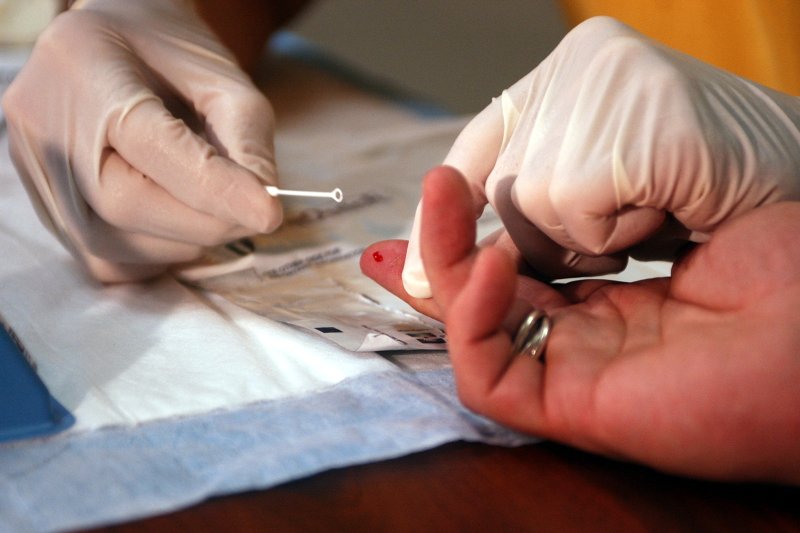Researchers are conducting human trials of a broadly-neutralizing antibody that can neutralize several strains of HIV. File photo by Michael Kleinfeld/UPI |
License Photo
Jan. 17 (UPI) -- Researchers have identified a new generation of antibodies that neutralized several strains of HIV and are conducting human trials with the 10-1074 antibody.
The team of investigators from Rockefeller University in New York along with Professor Florian Klein of the University Hospital Cologne, Germany, and the German Center for Infection Research, have tested the 10-1074 antibody in human trials.
"These antibodies are highly potent and are able to effectively neutralize a large number of different HIV strains," Klein said in a press release. "Therefore, they play an important role in the quest for and development of an HIV vaccine."
The 10-1074 antibody is broadly neutralizing and targets the V3 loop of the HIV envelope protein.
The study showed that the 10-1074 antibody demonstrated high antiviral activity, was well tolerated and showed positive pharmacokinetic properties in HIV patients.
"We performed a comprehensive HIV sequence analysis to investigate the dynamics and mechanisms HIV uses to escape the selection pressure of the antibody," Dr. Henning Gruell, a first author of the study, said in a press release.
The study involved 33 people who received a single intravenous dose of the 10-1074 antibody. The antibody was well tolerated and had a half-life of 24 days in individuals without HIV-1 infection and 12.8 days in those with HIV-1 infection. Of the 13 participants with HIV-1 viremia who received the highest dose of the antibody, 11 showed a rapid decline in the virus.
The study was published in Nature Medicine.















